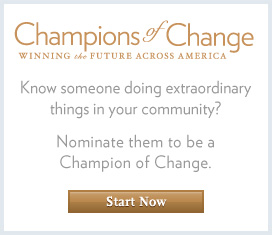Champions of Change Blog
You Too Can Make a Difference
Posted by on October 27, 2014 at 9:35 AM EST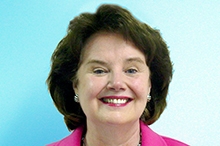
Pat Halpin-Murphy is being honored as an Affordable Care Act Champion of Change.
I am truly grateful to have been selected as a White House Champion of Change. I can’t tell you how much it means to me to be honored with this award.
As the President and Founder of the Pennsylvania Breast Cancer Coalition (PBCC), I lead a non-profit organization dedicated to finding a cure for breast cancer now so that our daughters won’t have to. I’m a breast cancer survivor, and twenty-five years ago when I was diagnosed I found that there wasn’t an organization in Pennsylvania dedicated to supporting women and families facing breast cancer. I founded the PBCC in 1993 to fill this void. In our twenty-year history, the PBCC has paved the way for countless legislative victories that support women and families across the state.
The best part of my work is talking to women about their experience with breast cancer and finding out what we can do to help meet their needs. For instance, we learned that many women were diagnosed with breast cancer in late stages because they have dense breast tissue. Upon learning this, we didn’t just sit by and wait for something to be done. Rather, we sprang into action and convinced Pennsylvania State Senator Bob Mensch to introduce legislation to help women with dense breast tissue receive improved information and screening so that they could be diagnosed at an earlier stage.
I believe that we all have the capacity to make a difference in our communities. Former U.S. Senator Harris Wofford made a tremendous impression on me as a leader. He recognized that each person has so much to contribute if only given the opportunity. He listened to people’s ideas and encouraged them to make those ideas become realities. Senator Wofford believed that everyone could contribute to their community. I truly believe that we can all make a difference. That’s the best part of this work. I’ve come to realize that, by simply standing up and taking action, we can all be “Champions of Change.”
Pat Halpin-Murphy is the President and Founder of the PA Breast Cancer Coalition.
Learn more about Health CareThe Affordable Care Act as Viewed by a Sister of Mercy
Posted by on October 27, 2014 at 9:35 AM EST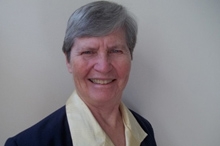
Joan Serda is being honored as an Affordable Care Act Champion of Change.
As an educator, I know the importance of health care. I’ve always had the privilege of having health insurance, so I’ve never had to worry about paying a medical bill or paying for a prescription. I haven’t had to be concerned about how to pay for the care of a sick child, spouse, or parent.
In Georgia, there is a lot of poverty, and many people don’t have health insurance. In Bibb County, where I live, there are tens of thousands of young people without health insurance.
Emergency rooms are not the answer to good health care. They are intended for emergencies. Emergency room visits are time-consuming and should be a last resort. They result in very expensive care and no follow-up. Often, patients don’t improve, and visits simply reoccur.
The Affordable Care Act is a step in the right direction, enabling many to obtain health insurance that they can afford. If children are healthy, they will learn more, and our schools will improve. If adults are healthy, they will be able to work more effectively and help their children grow, be healthy, and contribute to society.
I know a woman who had a possible cancer but refused to go to the doctor because she couldn’t afford it. But now, through the Affordable Care Act, she was able to get insurance and see a doctor. Another woman I know had insurance through her employer, but coverage through the ACA drastically reduced her premium without sacrificing health insurance coverage.
As a Sister of Mercy, I vowed to serve the poor, sick, and uneducated. Working with Get Covered America gave me the opportunity to help people become better educated about health coverage. I volunteered for ten hours a week to help people understand the Affordable Care Act. Many people were unaware of the opportunities available, and many had seen and heard false information. Some were fearful of something new and did not understand how health insurance works. Much education is needed, so I will continue as a volunteer for Get Covered America during the upcoming enrollment period.
Joan Serda is the Assistant Justice Coordinator for the Sisters of Mercy of the Americas South Central Community.
Learn more about Health CarePromoting Libraries for Affordable Care Act Outreach
Posted by on October 27, 2014 at 9:35 AM EST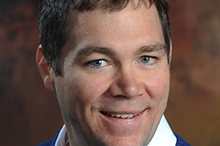
Jamie Markus is being honored as an Affordable Care Act Champion of Change.
As the Library Development Manager at the Wyoming State Library, I spend my time creating and coordinating programs that enhance library services offered to our state’s 580,000 residents. The Library Development Office staff manages, promotes, and supports many exciting statewide library projects.
In July 2013, the Institute of Museum and Library Services, the American Library Association, and other partner organizations launched an e-health initiative, asking all types of libraries to support educational and outreach efforts surrounding the Health Insurance Marketplace. The Library Development Office at the Wyoming State Library took the lead in coordinating with potential partners in Wyoming.
As the project progressed, I realized that libraries would become key partners in the outreach effort due to their status as community centers and trusted sources of information. I met and talked with as many organizations as I could find to discuss how Wyoming’s libraries could help to support the efforts of Healthcare Navigators and those working to inform residents about the Affordable Care Act, the Health Insurance Marketplace, and the HealthCare.gov website.
The Wyoming State Library designed and supplied 15,000 Health Insurance Marketplace handouts to Wyoming libraries, including twenty-three public libraries, seven community college libraries, a tribal college library, and the University of Wyoming libraries. More than 90 library outlets in nearly every major community in the state had the opportunity to provide these handouts to library patrons.
I participated in an untold number of meetings, teleconferences, webinars, and email exchanges to promote the idea of using library public meeting spaces and public access computers to those groups involved in educational events and insurance sign-up workshops on the Affordable Care Act and Health Insurance Marketplace. I also coordinated the production of two state-wide webinars and two programs at the 2013 Wyoming Library Association Annual Conference, informing library staff about the Affordable Care Act, the Health Insurance Marketplace, our Wyoming partners, and available resources.
The demand for information about the Affordable Care Act was high. I was glad to be able to promote libraries as a safe and trusted place for outreach organizations to put residents in touch with the information they wanted and needed.
Jamie Markus is the Library Development Manager at the Wyoming State Library.
Learn more about Health CareAlleviating the Burden of Circumstance
Posted by on October 27, 2014 at 9:35 AM EST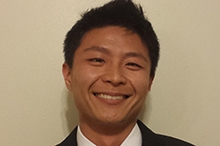
Peter Yang is being honored as an Affordable Care Act Champion of Change.
I believe that we are all products not only of our choices but also of our circumstances. There is a surprisingly prevalent misconception that people in adverse situations somehow deserve the hardships they face. Working in my community in Georgia, I’ve come to regard that idea as severely misguided; I have met so many hardworking individuals who, despite their best efforts, are trapped in a socioeconomic pit that they cannot dig themselves out of.
I first became involved in my community as an undergraduate at Emory University, when I saw the incredible impact of volunteerism in the surrounding community. During this time, I met many of the leaders and visionaries of the Asian American community in Georgia. Inspired by these individuals, upon graduation, I moved on to work at the Center for Pan Asian Community Services, where I was tasked with outreach for the Affordable Care Act during the first period of Open Enrollment. Prior to this work, my sole experience with the Affordable Care Act had been learning about its intricacies in a classroom setting. As I learned more about the program and its effect on the communities we serve, I began to see the law as a huge step in the right direction to improve the lives of the individuals that struggled with adverse circumstances.
Adequate access to health care is an essential part of human society. Some would even argue that it is a human right. Yet, the United States is severely behind the majority of other developed countries in providing that access. Georgia is home to one of the fastest growing populations of immigrants and refugees, and these individuals often lack adequate health insurance coverage. The more I worked with these individuals, the more I saw the human beings whose lives were impacted by the ACA.
The law has been successful thus far, but we still have more work to do. I am deeply honored to be selected as a Champion of Change but also just as honored that I have had the opportunity to serve these communities by promoting the Affordable Care Act.
Peter Yang is the Affordable Care Act Program Coordinator at the Center for Pan Asian Community Services.
Learn more about Health CareBringing the Benefits of Health Insurance to Low- and Moderate-Income Americans
Posted by on October 27, 2014 at 9:35 AM EST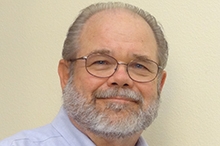
Bill Forbes is being honored as an Affordable Care Act Champion of Change.
All public service volunteer activities have the potential to be highly rewarding. It’s particularly gratifying, though, when one’s volunteer work addresses the underlying cause of an important societal need. That’s how I see my work with Get Covered America. The mission of GCA is to encourage uninsured Americans and legal residents to get enrolled in a health insurance plan through the Healthcare Marketplace established by the Affordable Care Act.
The primary objective of the ACA is to bring the benefits of health insurance to a larger fraction of Americans, in particular to those living in poverty or near poverty. Without health insurance, families already struggling to achieve economic security could be overwhelmed by health care costs at any time.
Get Covered America focuses its efforts on outreach and education. In partnership with a wide spectrum of educational, religious, and service organizations, we reach out to the uninsured with information about their options for high-quality, affordable health insurance under the Healthcare Marketplace.
Among the uninsured, lack of knowledge about the provisions of the ACA is a major barrier to getting enrolled. A study commissioned by Get Covered America conducted shortly after the first Open Enrollment period found that only 26% of those who did not enroll were aware that the law gives financial help in the form of tax subsidies to low- and moderate-income Americans. The study found that only 28% of those who did not enroll were aware that free in-person enrollment assistance was available and that less than half who did not enroll knew that health plans cannot deny people coverage based on pre-existing conditions.
We provide that information and more to individuals we meet at public events, at schools, at houses of worship, and through our many partner organizations, including health institutions and social service groups. In addition, we refer these individuals to the various local agencies that provide in-person enrollment assistance. One of the hallmarks of our program is follow-up, by phone and email, with the people we meet who express a need and desire to get enrolled. Working with GCA, I have found that follow-up beyond the initial contact very significantly increases the likelihood that an individual will complete the enrollment process.
It is a source of tremendous satisfaction for me and the many other GCA volunteers and staff to know that the lives of many of the people we help will be improved in concrete and long-lasting ways.
Bill Forbes is a volunteer with the Get Covered America campaign.
Learn more about Health CareMiami Dade College Leads with Initiative to Reach Students and Engage Community
Posted by on October 27, 2014 at 9:35 AM EST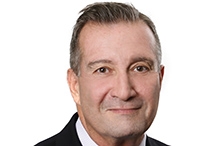
Joe Pena is being honored as an Affordable Care Act Champion of Change.
Miami Dade College (MDC) is the higher education institution with the largest campus-based enrollment in the United States, serving more than 165,000 students. Under the leadership of its president, Dr. Eduardo J. Padron, the institution has been elevated to national prominence for its innovation, programs of excellence, and service to the community.
President Padron designated me to coordinate a college-wide initiative to educate students, faculty, and the local community about their options under the Affordable Care Act. I was incredibly motivated to work on this project. Early on, we formed a partnership with Get Covered America, which sparked local community organizations and volunteers to assist with our efforts. We organized a series of successful educational outreach events, including workshops on multiple campuses. These events provided key information and enrollment assistance to all with an interest in signing up for health insurance.
The informational workshops were held on Saturdays and weeknights in the computer courtyards of four of our campuses stretching across all of Miami-Dade County. Holding these workshops in our computer courtyards allowed the trained assisters to educate the participants, explain the enrollment process, and answer questions directly.
Although I spearheaded this initiative, it came together as a result of the contributions of many in our institution. For Miami Dade College, this was an “all hands on deck” project focused on our students and local community. From our College and campus leadership to our administrators to our computer technicians and support staff, we were all motivated to pitch in, educating and assisting others about their health care options. The College District Office of Communications played a key role in announcing our outreach activities, generating media attention, and encouraging all to visit the HealthCare.gov website.
In the next enrollment period, we plan to once again partner with Get Covered America and the other community organizations to run educational workshops and to engage our communications network. In addition, we are organizing “office hours” on our campuses, allowing students and community members to set up individual enrollment assistance appointments with the trained assisters from the community organizations.
This MDC initiative is credited with having made a significant impact, improving the access to health care for thousands of residents in Miami-Dade County and throughout South Florida. I am proud to have been a part of this effort and to have been designated a “Champion for Change”.
Joe Pena is the Director of Federal Relations for Miami Dade College.
Learn more about Health Care
- &lsaquo previous
- …
- 10
- 11
- 12
- 13
- 14
- 15
- 16
- 17
- 18
- …
- next &rsaquo

